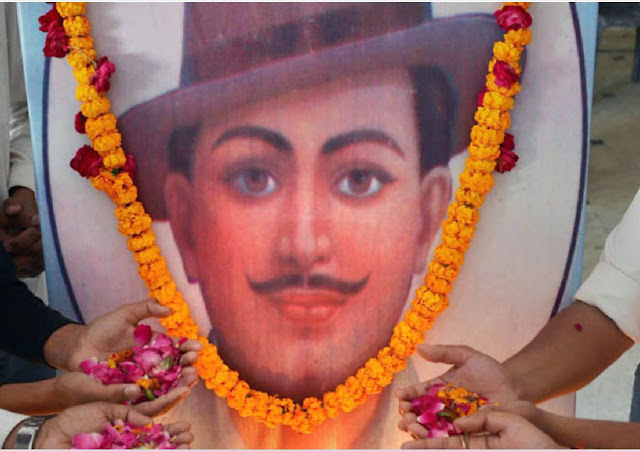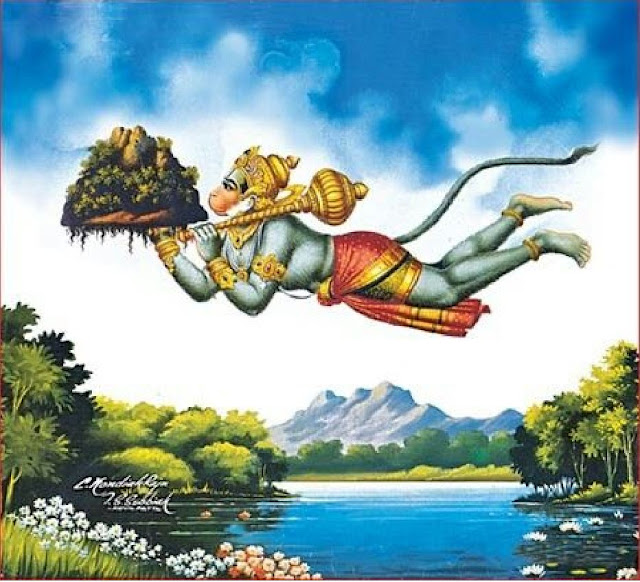SALUTING UNSUNG HEROES OF BHARAT INDEPENDENCE: HOW
DESERVING ARE CREDITS TO NEHRU AND GANDHI?
Thakur Ranjit Singh
On India Independence or Republic Day, as
you raise the tricolour, Indian flag Tiranga, remember many unsung
heroes and freedom fighters who fought for Bharat Azaadi-India Independence, long before
Nehru and Gandhi.
Please give salutation to
our heroes like MANGAL PANDEY, SUBHASH CHANDRA BOSE, SARDAR BHAGAT SINGH,
CHANDRA SHEKHAR AZAAD, SHIVARAM RAJGURU, SUKHDEV THAPAR, and JHAANSI KI RANI,
among others who Indian history appear to have side-lined or ignored.
Are Nehru and Gandhi
deserving of the credits we give to them? Or they merely stole credits from these
earlier heroes who gave their lives for Bharat Mata….Please read on………
As a child of third
generation Fiji Indian growing up in Fiji in 1960s, we were falsely made to
believe that India got its Independence because of Mahatma Gandhi and
Jawaharlal Nehru. Songs were made which said the Angrez or British were chased
away with Gandhi’s laathi (walking stick) and Nehru was instrumental in
achieving India’s Independence.
 |
| Subhash Chandra Bose - a very bold Indian freedom fighter who seem to have mysteriously disappeared. he had laid very firm paths to India's freedom from British |
However, from an early
age, I suspected that Gandhi and Nehru took credit from other freedom fighters
who started this fight and movement for India independence long before these
two came into the picture.
While growing up, we were
told the glories of Nehru Chaachaa (uncle) who was very favorite with children. Children’s
programmes of 60s and 70s glorified Nehru as universal uncle of India, Chaachaa Nehru – a very loving person. The question whether he was Chaachaa Nehru or Chaccha (Please decipher the difference!)
Indeed, also very loving
to British honey trap, Lady Edna Mountbatten, aunty (Mami) of the heir to British
throne, Prince Charles. British spy agency M16 recruited this bed-hopping wife
of viceroy of India, Lord Mountbatten to use her as a honey-trap to distract and
neutralize Nehru who was negotiating independence for India.
 |
| SARDAR BHAGAT SINGH, perhaps one of India's most celebrated freedom fighters on whom at least seven Bollywood movies have been made. |
In simple crude language,
I have said so many times, while Nehru was (screwing) having an extramarital
love affair with this British honey-trap, the British screwed India. This
resulted in an easier partition, the pains of which are still felt today, with
very ungrateful neighbors.
Nehru, a known womanizer,
never deserved to be given that honour of Chaachaa of the children of India. This
was the biggest lie - and neither was he instrumental in bringing Azaadi or independence to
Bharat.
Fight for India
independence was like a long marathon relay run, where batons are passed by the
starter runners to consecutive runners in front. And in case of victory, the
glory goes to the whole team and not to the last few runners.
 |
| MANGAL PANDEY started his freedom fight a century before India's independence. |
But exactly the opposite
happened in case of India where the last people in the Independence relay,
Nehru and Gandhi, undeservingly and wrongly took the credit from those early
freedom fighters who started the battle many decades before, and were ignored
by media and history, in favour of the last persons holding the baton.
Nehru made some poor
decisions which still affect India today, and gave India very undeserving
legacy of dynastic leadership still affecting India today, with a very wanting history
of Congress rule.
While Mahatma Gandhi may have gained international accolades, applause and status for his quotations and views on non-violence, at home in India he is still found a wanting leader who made some crucial errors of omission and commission.
He could have intervened
and saved Shaheed Bhagat Singh from hanging, but maintained silence. And the
biggest blunder was to favour a womanizer and undeserving Nehru as Prime
Minister instead of a dedicated and charismatic leader Sardar Patel after India
Independence in 1945. And today India is poorer for those very unfortunate judgmental
errors of Gandhi.
I was lucky to have known
about some early freedom fighters. As my Aaja (paternal grandfather) Bansi
descended from a Rajput family of Prithvi Raj Chauhan and coming from
Rajasthan, he was very interested in India’s fight for freedom. He played Shaheed
Bhagat Singh’s play on his 78 RPM (rounds-per -minute) key-winding gramophone
record (plate Baja) when I was growing up. And I knew the earlier freedom fighters
fought and gave their lives for Bharat while credit has been wrongly taken by
Nehru and Gandhi.
And Nehru and Gandhi never gave India the good transition and succession after independence in 1945, with very nepotistic decisions.
Unfortunately, Nehru Dynasty and Congress legacy has left India bereft of dignity and many things Nehru promised over seven decades ago. For some seventy years after Independence, Congress leadership left a great deal to be desired in India -and we are poorer for that dereliction of duties by succeeding dynastic Nehru-Gandhi leadership in the Congress Party.
Thank God for the Lion of Gujarat, Narendra Modi, who is seen as an incarnation who will rid India of the vices that have been nurtured by India's past corrupt, distracted and wanting leadership. Bharat needed a Hindu nationalist leadership movement that has been long overdue. It appears to have been delivered now.
And that work shall continue under a credible leadership that took 70 years in coming. And we are proud that India today is in better hands than ever been so, under Narendra Modi.
And shall we pray that
he will be able to wrest back the dignity India once commanded domestically and
internationally. The economic development of the last 70 years have not
trickled down to the common people. There is a lot more that needs to be done,
where social justice needs to be delivered to ALL the Indians.
 |
| NARENDRA MODI-THE LION OF GUJARAT - the leader on who India has its hopes and his visionary succession plans for leadership which both Nehru and Gandhi lacked. |
SHAT
SHAT NAMAN-SALUTATIONS TO ALL PAST GREAT UNSUNG HEROES OF INDIA’s FIGHT FOR
FREEDOM
JAI HIND -
BHARAT MAA KO PRANAAM
[ABOUT THE AUTHOR: Thakur Ranjit Singh, based in Auckland, New Zealand, is a
third generation Fiji Indian. He was born in Fiji Islands. His Aaja, paternal grandfather,
Bansi came as an indentured labourer to Fiji in 1915 from Karouli, Rajasthan,
India. Thakur is a media commentator and a journalist who runs his blog, FIJI
PUNDIT. E-mail: thakurjifj@gmail.com]




























